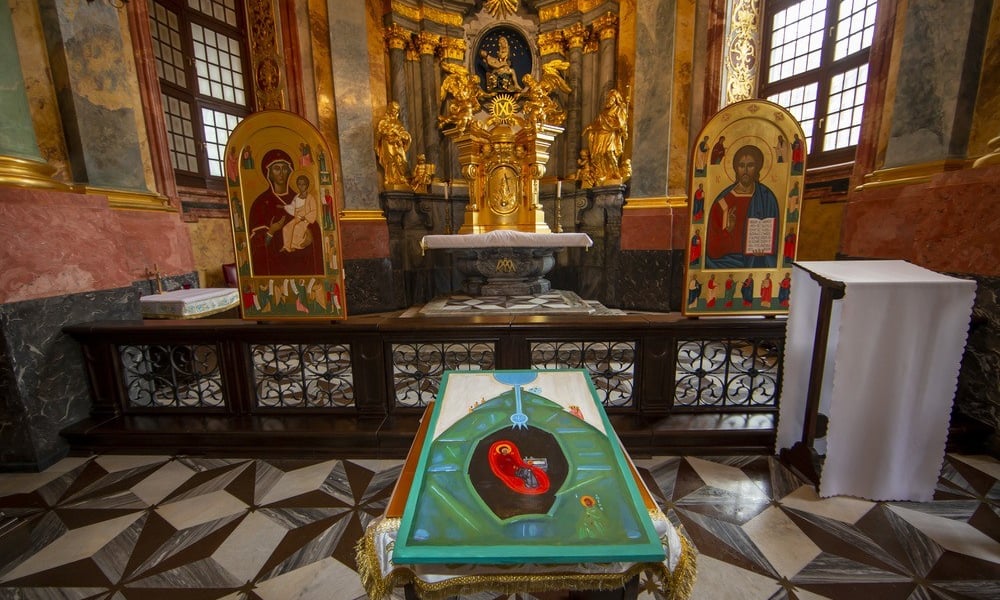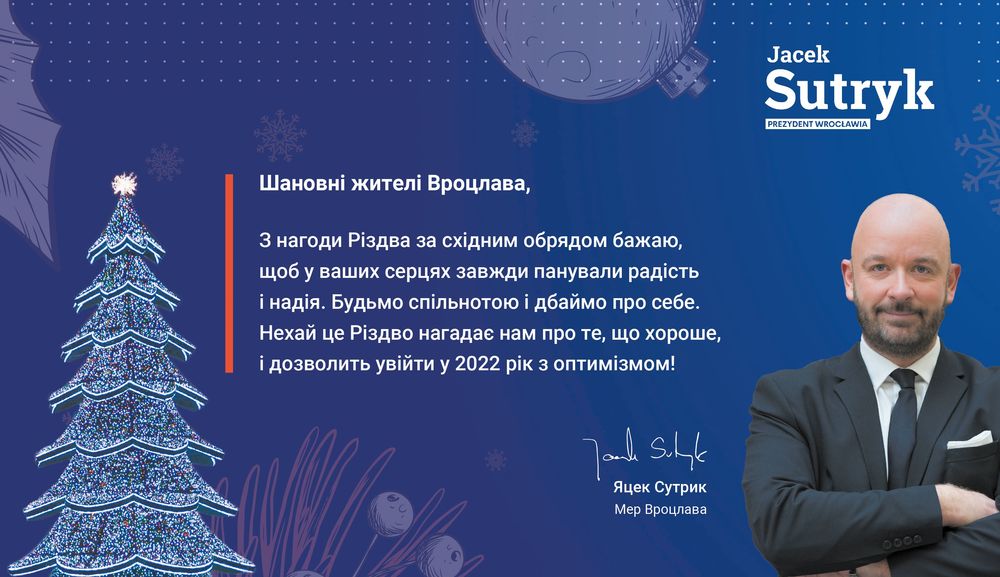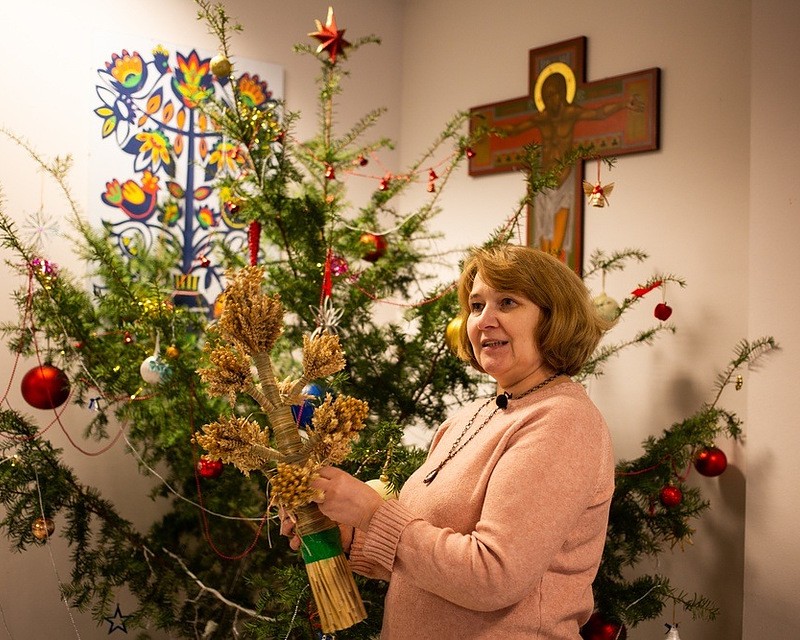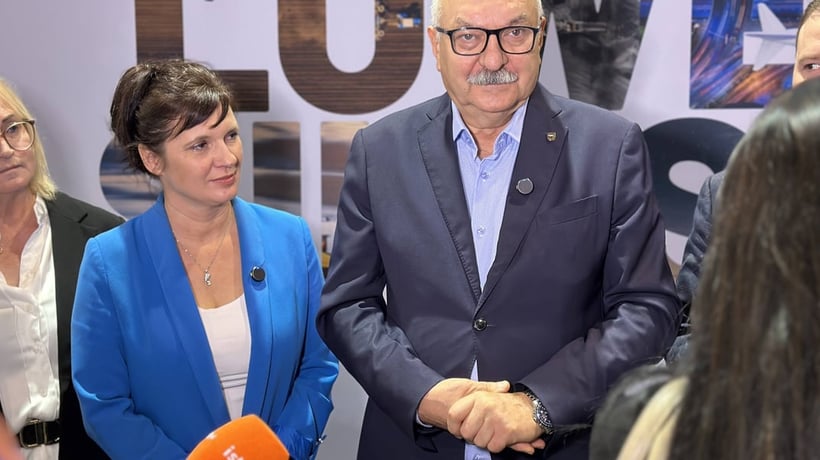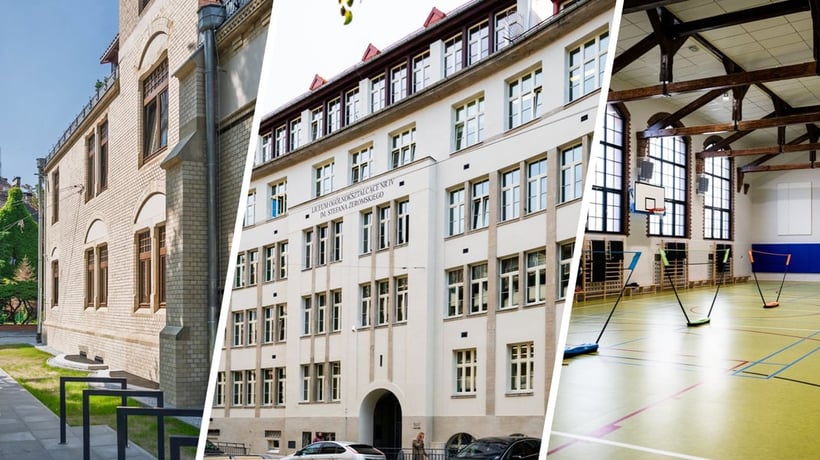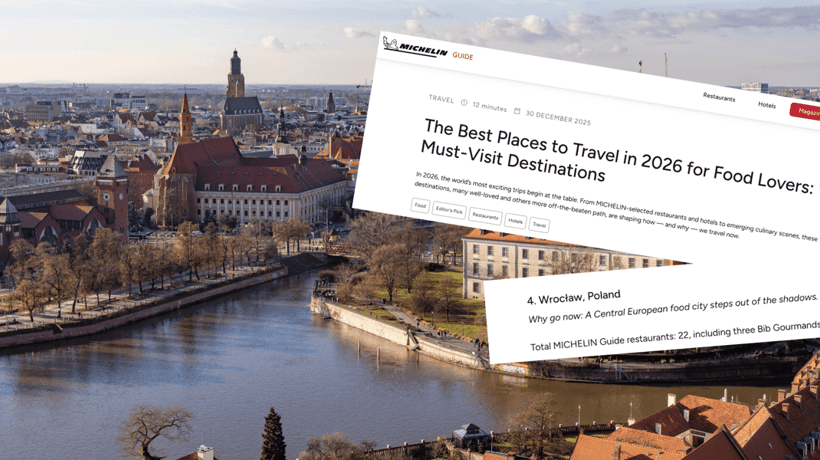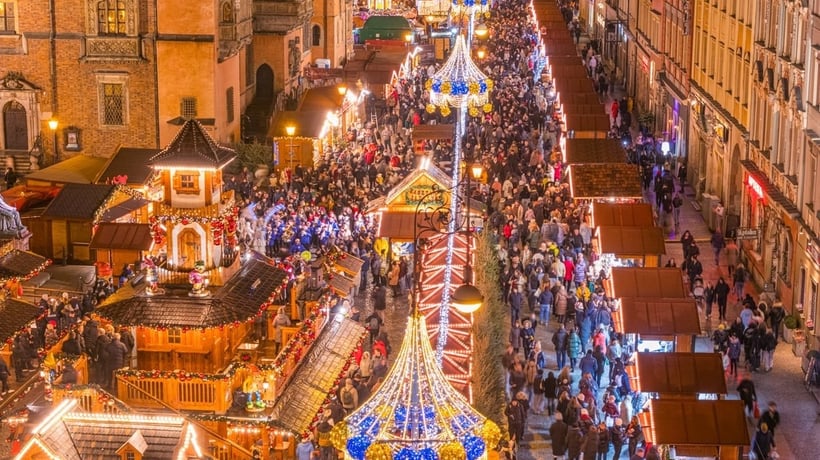According to the Julian calendar, Greek Catholics and Orthodox Christians will sit down for Christmas dinner on 6th January. This difference in the time of celebration results from the fact that the Eastern Church uses the Julian calendar, whereas Catholics use the Gregorian calendar.
‘It is currently estimated that around 100,000 citizens of Ukraine can live and work in Wroclaw. Some of them are non-believers, but there are also Orthodox Christians and Greek Catholics in this group. The number of participants in Sunday liturgies has increased very much in our church. Some of them will spend this Christmas in Wroclaw,’ adds Rev. Andrzej Michaliszyn, the head priest of the Greek Catholic parish in Wroclaw.
On Christmas Eve, the most persistent Orthodox Christians and Greek Catholics fast all day, until the beginning of the dinner. When giving wishes to each other, believers in Eastern religions share the prosphoron instead of the wafer – it is a wheat bread baked of flour, yeast and water, often consumed with honey on Christmas Eve.
On the tables there are 12 fasting dishes, each of which symbolises something: kolivo means richness and borscht means welfare. There will also be fish, dumplings, dried fruit compote, borscht and – in Lemko houses – kiselytsia (soup on oat leaven). A frequent item on the table is also garlic eaten with salt.
After the dinner, Velykye Povecherye masses take place in Greek Catholic and Orthodox churches. During the mass, Isaiah’s prophecy about the Saviour’s birth is read.
‘Customs are similar to Catholic ones – we fast and Christmas dinner includes twelve dishes, sometimes even more. The most important dish is the kolivo; we also cook potato dishes and serve herrings instead of carp. We sing very many Christmas carols. Instead of the wafer, we share the prosphoron – bread used for consecration in liturgy. In the past, particularly in villages, people spread out straw on the floor and placed a didukh made of various types of cereals in the corner of the house in order to ensure prosperity at home,’ says Halina Czekanowska, the chairwoman of the Greek Catholic club.
On the photo: Halina Czekanowska from the Greek Catholic club with a traditional didukh
In Orthodox churches, there is no tradition of Christmas cribs, but an icon presenting the Nativity scene and a cross is exposed in the central part of the temple. This icon is more than a painting – it is supposed to help believers read the message of Christmas.
During the Christmas period, believers in Eastern religions greet one another with words: Khrystos Razhdajetsia! Slavite Yoho! which means: Christ is Born! Glorify Him!
In Eastern traditions, carols are often sung together, and the repertoire of carols and shchedrivkas is quite rich. Another popular Christmas tradition is the vertep, and carollers can be seen also in Wroclaw.
Three-day Christmas
7th January is Christmas Day, 8th January is the Feast of the Holy Family, and 9th January is Saint Stephen’s Day.
Christmas masses in the Greek Catholic Cathedral of Saint Vincent and Saint James at Plac Nankiera
- 6th January, 10:00 p.m., Velykye Povecherye
- 7th January, Christmas Day, 10:00 a.m., 12:00 p.m. and 6:00 p.m. (Arkhiyereyska Divine Liturgy at 10:00 a.m.)
- 8th January, Feast of the Holy Family, 10:00, 12:00 a.m. and 6:00 p.m.
- 9th January, Saint Stephen’s Day, 8:00, 10:00 a.m., 12:00 p.m. and 5:00 p.m.
Christmas masses in the Orthodox Cathedral of the Birth of the Most Blessed Mother of God at ul. Św. Mikołaja 40
- 6th January, 5:00 p.m., Velykye Povecherye and Matins
- 7th January, Christmas, 9:00 a.m. Divine Liturgy, 5:00 p.m. Great Evening Service
- 8th January, Feast of the Holy Family, 9:00 a.m. Divine Liturgy, 5:00 p.m. All-night vigil
- 9th January, 9:00 a.m. – Divine Liturgy, 5:00 p.m. Evening Service
19th January – Feast of the Baptism of the Lord / Feast of Jordan
Orthodox Christians and Greek Catholics will celebrate the Christmas period until 19th January, which is the day of Epiphany (6th January in the Catholic Church). This day is the Feast of the Baptism of the Lord, or the Feast of Jordan, which is celebrated very solemnly in Wroclaw – a solemn procession of believers goes to the bank of the Oder to consecrate water symbolically. For the last several years, water has been consecrated on Xawery Dunikowski Boulevard, from which stairs descend towards the Oder. Not only Greek Catholic priests, but also Catholic and Evangelic priests participate in the prayer. This year, however, there will be no procession.
On that day, priests consecrate water in the river or lake, in cross-shaped ice-holes. Believers take the consecrated water home.
In Eastern tradition, Epiphany is also known as Theophany and is one of the 12 main holidays in the year.
